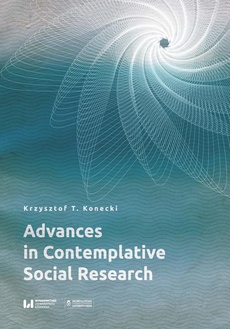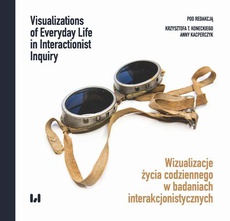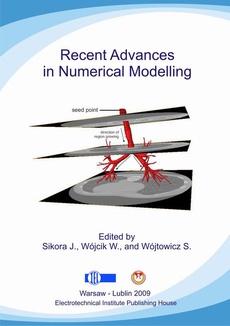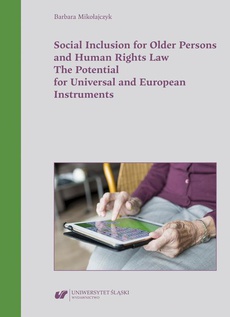INNE EBOOKI AUTORA
Advances in Contemplative Social Research
Autor:
Wydawca:
Format:
pdf, ibuk
This book is unique and audacious, and fits very well with current tendencies within qualitative research. It introduces new, fresh threads to questions and concerns that are highly significant for contemporary social sciences. The formulated conclusions go beyond directly methodological issues, posing key philosophical questions to the whole project of Western sociology.
Grażyna Woroniecka
From the review of the book
Deep contemplation of the situation could be the epistemological choice for social scientists. It is a fundamentally different approach to the research, where the investigator is researching the object but also the situation of research and her-self/him-self. Contemplating is a dual way of the approaching the truth. It does not mean that the researcher is mentally divided; just the opposite, she/he wants to be complete and achieve the unity of being as a researcher-human being and an element of the situation (psycho-social and historical). Contemplating enables researchers to see how the mind works and creates the images and reports from the field – what is available for the mind and what is silent or repressed because of the dominating rhetoric of description and rhetoric of feeling?... Contemplation is not only analysis, it is also an ethical choice of stopping here and now to see the situation clearly and reporting it with the all reservations that could be the result of the mindfully-observed interaction of mind, self, and situation at one historical moment.
From the Introduction
| Rok wydania | 2018 |
|---|---|
| Liczba stron | 260 |
| Kategoria | Teoria ekonomii |
| Wydawca | Wydawnictwo Uniwersytetu Łódzkiego |
| ISBN-13 | 978-83-8142-122-5 |
| Numer wydania | 1 |
| Język publikacji | angielski |
| Informacja o sprzedawcy | ePWN sp. z o.o. |
POLECAMY
Ciekawe propozycje
Spis treści
| Introduction | 9 |
| Part One ‒ The Basics of Contemplative Research | 25 |
| Chapter 1. Identity Processes and Dialogicality of Self ‒ the Problem of Anamnesis | 27 |
| 1.1. Introduction | 27 |
| 1.2. “I” | 27 |
| 1.3. “Me” | 28 |
| 1.4. Dialogue – ‘internal conversations’ | 28 |
| 1.5. Anamnesis | 29 |
| 1.6. Anamnesis Work | 31 |
| 1.7. Work on Identity | 32 |
| 1.8. Conclusions | 36 |
| Chapter 2. Meditation for Social Scientists | 39 |
| 2.1. Introduction | 39 |
| 2.2. Epistemology of the Middle Way | 39 |
| 2.3. Eightfold Path: Ethics and Cognition | 43 |
| 2.4. Meditation Practice for Sociologists | 50 |
| 2.5. Deconstruction and Reconstruction | 53 |
| 2.6. Intuition for Sociologists | 59 |
| 2.7. Conclusions | 64 |
| Chapter 3. Contemplation for Economists. Towards a Social Economy Based on Empathy and Compassion | 69 |
| 3.1. Introduction | 69 |
| 3.2. The Cult of Money according to David Loy | 74 |
| 3.3. The Buddhist Economy according to Frederic L. Pryor | 77 |
| 3.4. Towards a Social Economy | 80 |
| 3.5. Conclusions | 81 |
| Chapter 4. The Problem of Ontological Insecurity. What Can We Learn from Sociology Today? Some Zen Buddhist Inspirations | 87 |
| 4.1. Introduction | 87 |
| 4.2. Zen Buddhist Inspirations for Sociology | 90 |
| 4.3. Sociological Inspirations | 92 |
| 4.4. What is Ontological Security? | 99 |
| 4.5. Suffering | 103 |
| 4.6. Greedy Institutions | 108 |
| 4.7. Conclusions | 114 |
| Part Two ‒ The applications | 121 |
| Chapter 5. Standing in Public Places: An Ethno-Zenic Experiment Aimed at Developing Sociological Imagination, and More Besides… | 123 |
| 5.1. Introduction | 123 |
| 5.2. Methodology | 128 |
| 5.3. The Analysis of Auto-Reports | 132 |
| 5.3.1. Standing “Activity” | 132 |
| 5.3.2. Thinking | 132 |
| 5.3.3. The Strength of the Mind and Thinking—The Battle of Thoughts | 134 |
| 5.3.4. Mindfulness Appears | 135 |
| 5.3.5. The Reactions of ‘Normal Others’ | 136 |
| 5.3.6. Reflections After the Experiment | 136 |
| 5.4. Conclusions | 138 |
| Chapter 6. Contemplating Technology in Qualitative Research | 141 |
| 6.1. Introduction | 141 |
| 6.2. The Research and Disputes on CAQDAS | 143 |
| 6.3. Perspective of the Research | 146 |
| 6.4. Research, Methods, and Data | 152 |
| 6.5. Explicitation. The Central Themes of All the Auto-reports | 155 |
| 6.5.1. Overview | 155 |
| 6.5.2. Technical Activities and Analytical Thinking | 156 |
| 6.5.3. Parallel Paths of Thinking | 160 |
| 6.5.4. Auxiliary Activities | 161 |
| 6.5.5. Evaluative Thinking: Evaluating the Program and Computer Functions and the Comfort and Efficiency of the Work | 161 |
| 6.5.6. The Issue of Concentration | 162 |
| 6.5.7. Auto-observation/ Auto-reporting | 164 |
| 6.5.8. The Perception of the Body | 165 |
| 6.5.9. Emotions | 167 |
| 6.6. Unique Topics | 168 |
| 6.7. Physical Elements of the Situation | 170 |
| 6.8. Conclusions | 171 |
| 6.8.1. Methodological conclusions | 175 |
| Chapter 7. Experiencing the University | 179 |
| 7.1. Introduction | 179 |
| 7.2. Research, Methods, and Data | 180 |
| 7.3. Research Results: Experiencing the University Organizational Culture | 183 |
| 7.3.1. Experiencing Emotional States While Being at the University | 184 |
| 7.3.2. Experiencing the University Infrastructure and Its Services | 187 |
| 7.3.3. Organization Participants’ Routine Activities | 192 |
| 7.3.4. Social Relations at the University | 194 |
| 7.3.5. Unique Themes of Meaning Not Related to the Foregoing Ones | 196 |
| 7.4. Discussion | 196 |
| Chapter 8. Hatha-yoga in Higher Education | 201 |
| 8.1. Introduction | 201 |
| 8.2. Yoga in Higher Education | 203 |
| 8.3. Applications of Hatha-Yoga in Higher Education | 205 |
| 8.4. Yoga Practice at the Course of “Meditation for Managers” | 208 |
| 8.5. Conclusions | 216 |
| Chapter 9. Buddhism Zen and Qualitative Research | 221 |
| Part three ‒ Technicalities | 225 |
| Chapter 10. Technical Aspects of Contemplative Research | 227 |
| 10.1. Introduction | 227 |
| 10.2. Meditation | 228 |
| 10.3. Self-observation | 229 |
| 10.4. How to Write Auto-reports | 231 |
| 10.5. Zenic Experiments | 231 |
| 10.6. Contemplation | 233 |
| 10.6.1. Empathetic Experiments | 234 |
| Conclusions | 237 |
| Bibliography | 243 |
| Information about the author | 259 |



























